Dedicated faculty members, innovation and small classes add up to success and high rankings
Story by Ed Dorsch
July 16, 2025
As her students work in small groups, none of them notices Suzanne Rowe sneaking out of class. When she returns a minute later, she's wearing a judge's robe. The students hear someone shout "All rise!"
It's one class they'll remember from law school, said Rowe, the James L. and Ilene R. Hershner Professor at the University of Oregon School of Law and director of the legal research and writing program.
Rowe doesn't break character, firing off questions about a Supreme Court case and pointing to individuals. The theatrics hold their attention but also serve a purpose, Rowe said.
"As they formulate their answers, they begin to understand how the order of my questioning is intentional," she said. "There's a method, a thought process that improves their writing."
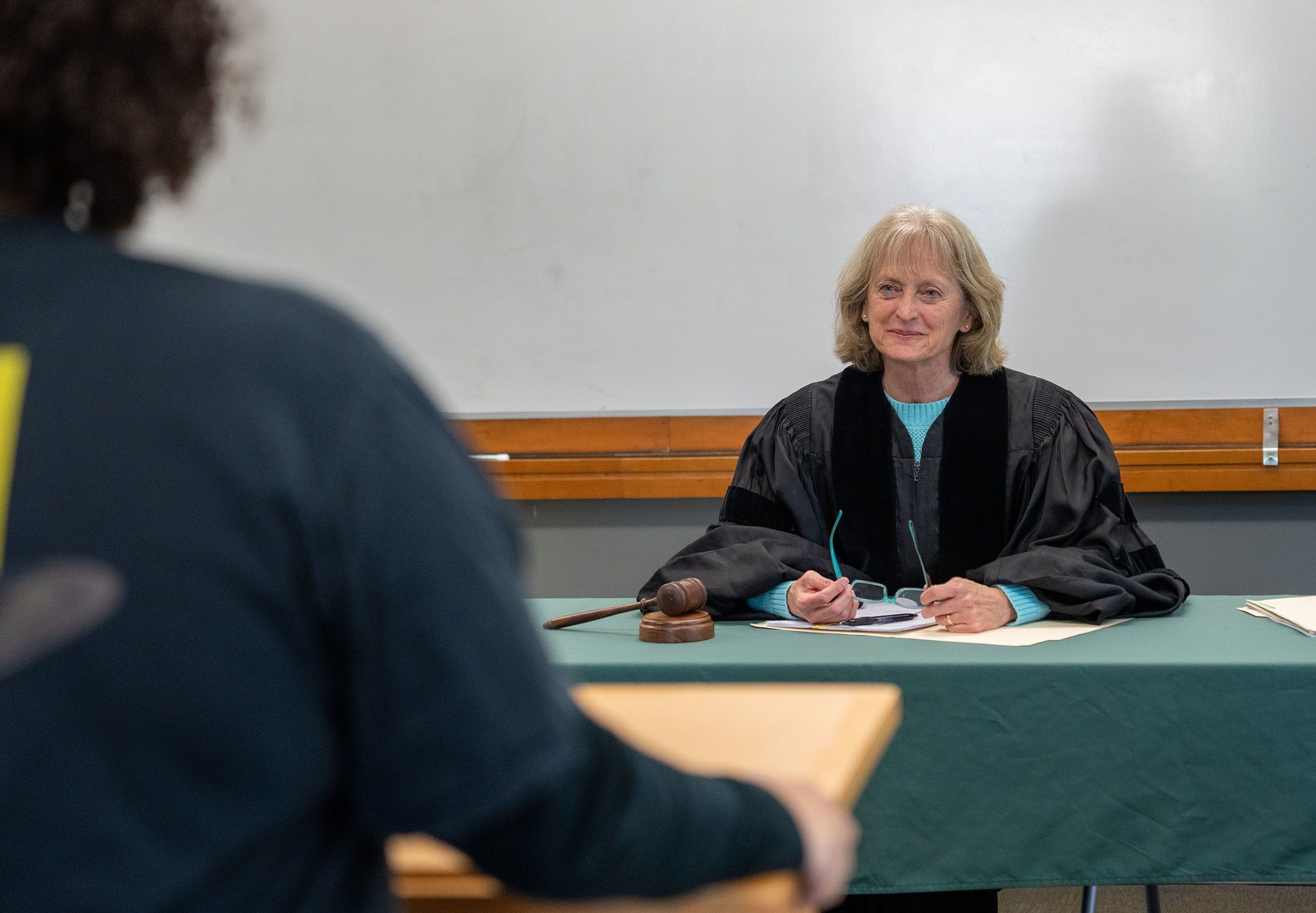
Thanks in part to creative, engaging classes like that one, the UO's legal research and writing program consistently earns top marks. And faculty members lead the way nationally in this area of legal education that is critical for all areas of law practice.
In 2025 U.S. News and World Report ranked the program No. 1 in the U.S. for the fifth year in a row. For 18 consecutive years, it's stood among the top 10.
The key, Rowe said, is people.
The faculty members are dedicated, Rowe said. And that dedication leads to success. For them, teaching legal writing is their passion, both in the classroom and in the rest of their professional work.
The UO School of Law's research and writing faculty members win teaching awards and publish textbooks used nationwide. They lead national journals, chair conferences, write scholarly articles and break trail on current topics such as artificial intelligence. Two have served as president of the Association of Legal Writing Directors.
"Communication is an important aspect of being an attorney. Regardless of whether or not you are litigating, you need to make your point and prove it."
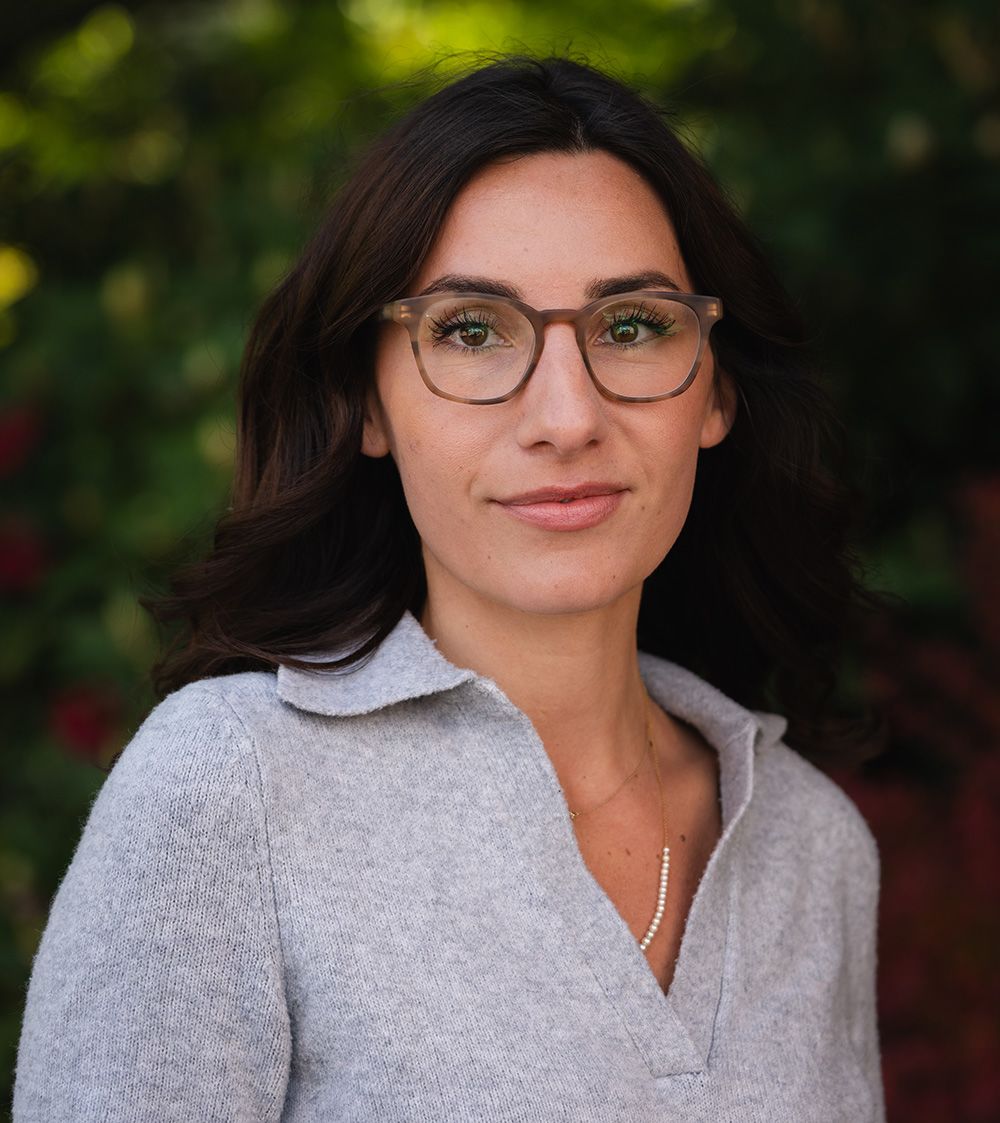
"It's a great program, and there are clear reasons why it's nationally recognized," said Madeline Hailer, a 2023 law school graduate who helped mentor students in Rowe's classes during her second and third years of law school.
Hailer recently completed a two-year term as a judicial law clerk for the U.S. District Court for the District of Oregon. Research and writing were key aspects of her clerkship, she said.
Hailer agrees that the faculty members make the program successful, serving as mentors, creating opportunities for students, and helping them with professional networking. Small class sizes offer individualized attention and engaging discussions.
For Hailer, the classes provided early opportunities to put academic theory into practice. Students write legal documents, in which they must develop a clear argument and thoroughly support it.
"Communication is an important aspect of being an attorney," Hailer said. "Regardless of whether or not you are litigating, you need to make your point and prove it. Being able to articulate persuasively what you think needs to happen is invaluable."
"AI isn't going to take over. But it's becoming increasingly important. My goal for my students is to use it where it's appropriate to become more efficient and serve their clients more effectively."
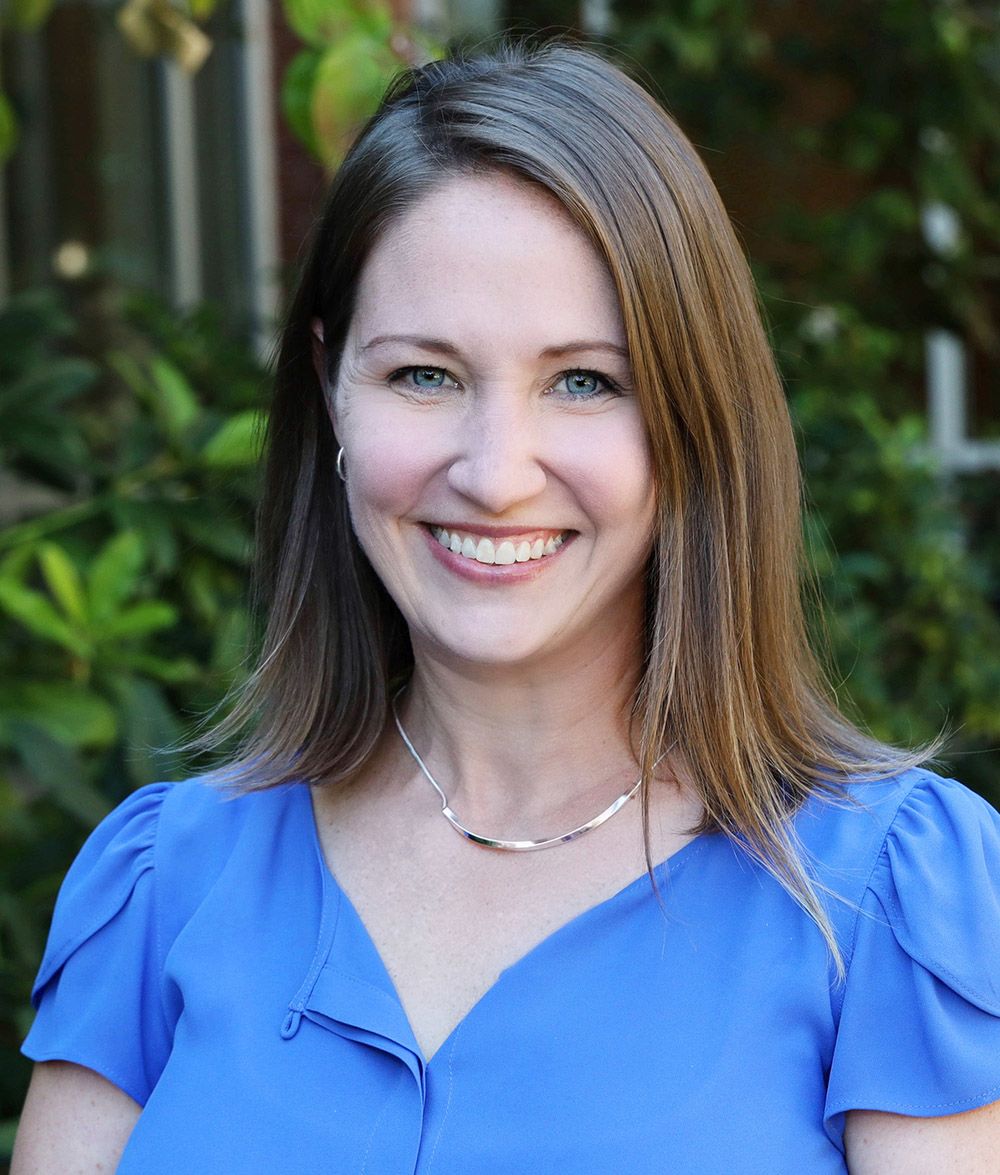
Law students don't always appreciate the value of legal research and writing until they start their careers, said Elizabeth Frost, a clinical professor with the program who has served as editor in chief for a national journal published by the Legal Writing Institute.
The discipline is often misunderstood, Frost said. After all, if you're admitted to law school then you should probably know how to write.
However, she emphasized the curriculum covers much more than commas. Students learn legal analysis and rhetoric and how to evaluate issues, persuade an audience, organize arguments and write concisely.
Whether you're communicating with a jury or a judge, brevity and clarity are crucial, Frost said. If you can't communicate your brilliant idea, then the idea may be useless.
The program's stellar reputation goes back decades. Mary Lawrence, who founded and led it from 1978 until she retired in 2000, was a pioneer in legal writing education and helped establish the discipline as a field of legal scholarship.
The innovation continues today, for example, with artificial intelligence.
"AI isn't going to take over," Frost said. "But it's becoming increasingly important. My goal for my students is to use it where it's appropriate to become more efficient and serve their clients more effectively."
"It doesn't matter if you're writing for courts, clients, opposing parties, legislators or a board of directors. Your clarity and precision could affect fundamental rights and lifelong dreams."
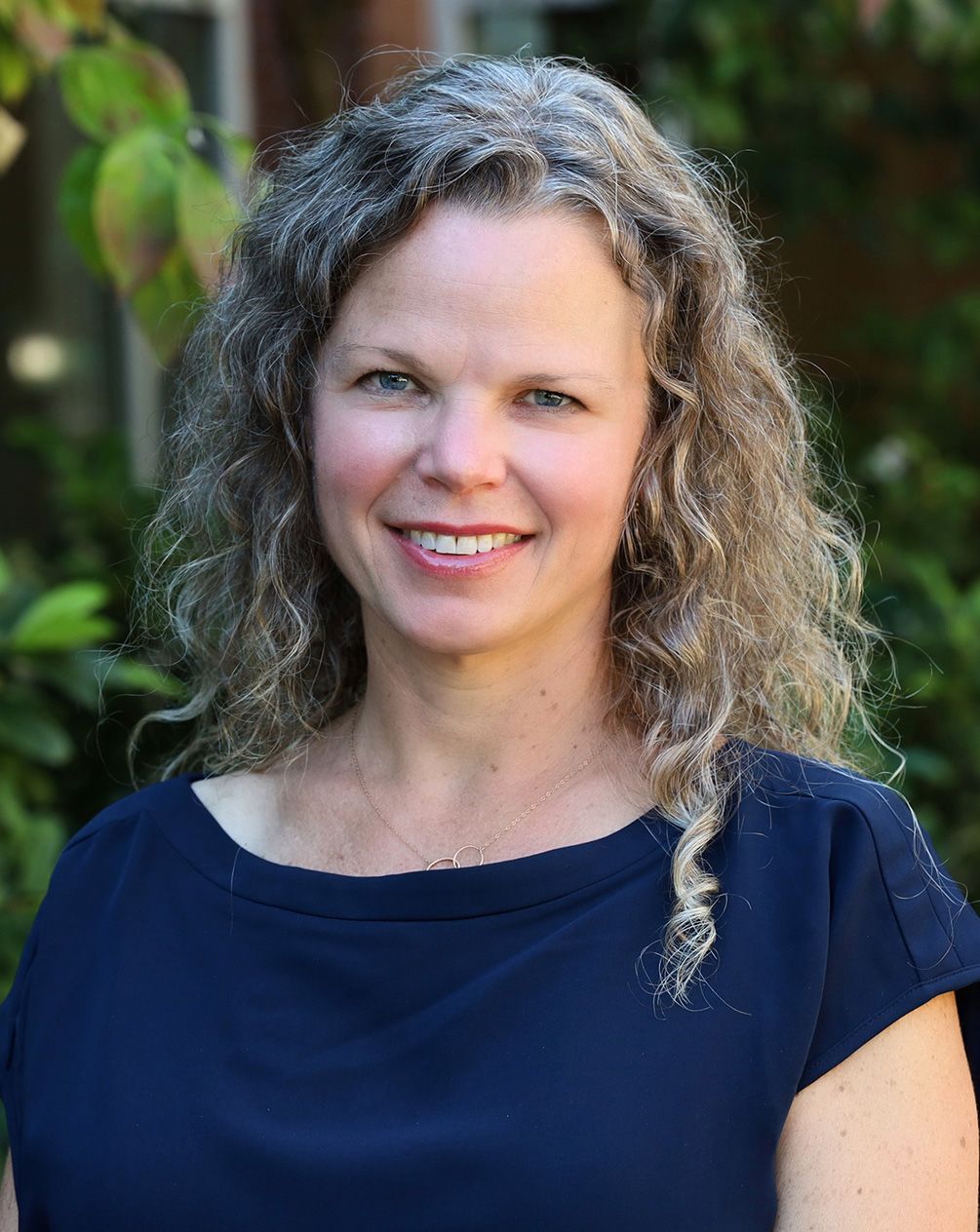
Clinical professor Rebekah Hanley points to this willingness to incorporate AI as an example of the program's flexibility, open-mindedness and student-centered approach.
Thoughtful, strategic writing is a uniquely human endeavor, Hanley said. We enjoy, but often don't appreciate, an infinite capacity to adjust the written expression of an idea, to improve clarity and persuade readers through nuanced alterations in organization, sentence structure and word choice. Effective legal writing requires critical thinking and extensive revision, she said.
But Hanley was one of the first law school faculty members to embrace the technology, exploring ways her students can be creative human writers while using generative AI to leverage their not-so-artificial knowledge and emotional intelligence.
"We chose to lean into AI, experiment with it, discuss it and engage the students on the topic," Hanley said. "We could ignore it or ban it, but we'd rather face the challenge head-on and have honest conversations with our students."
After all, Hanley added, students arrive at law school with years of practice using AI and will likely use it professionally.
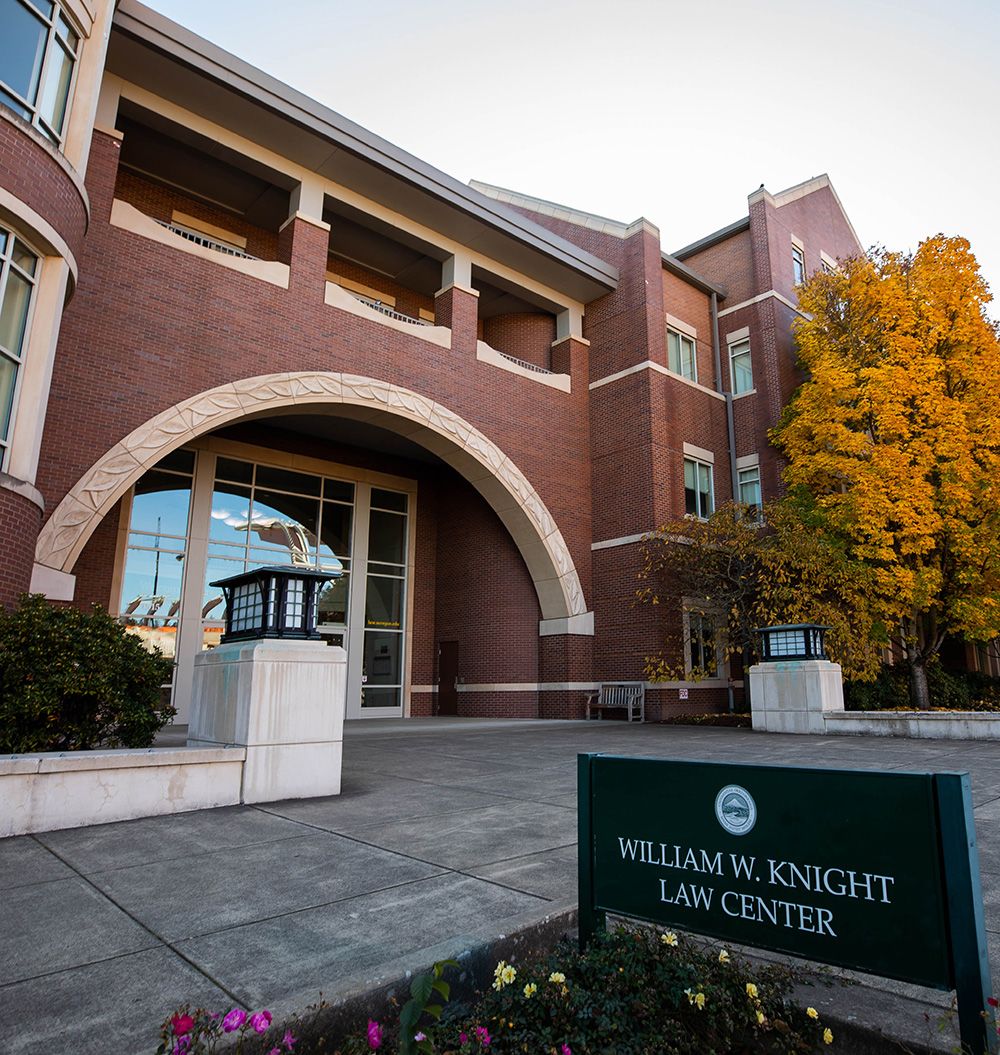
For one of her assignments, Hanley requires students to test their written arguments by submitting a generative AI prompt asking for 20 ways a fact in a client's case is like or unlike a key fact in a precedent setting judicial decision.
It doesn't do the work for them, but it helps unblock them, Hanley said. That can spur new ideas and uncover holes in their arguments.
The key is to use AI as a tool.
It's one of a comprehensive set of practical tools the program provides for students. Faculty members say that research and writing toolbox will be useful, regardless of their academic pursuits, their professional goals or changes in how law is practiced.
As Rowe pointed out, nearly every lawyer writes something.
"It doesn't matter if you're writing for courts, clients, opposing parties, legislators or a board of directors," Rowe said. "Your clarity and precision could affect fundamental rights and lifelong dreams."






